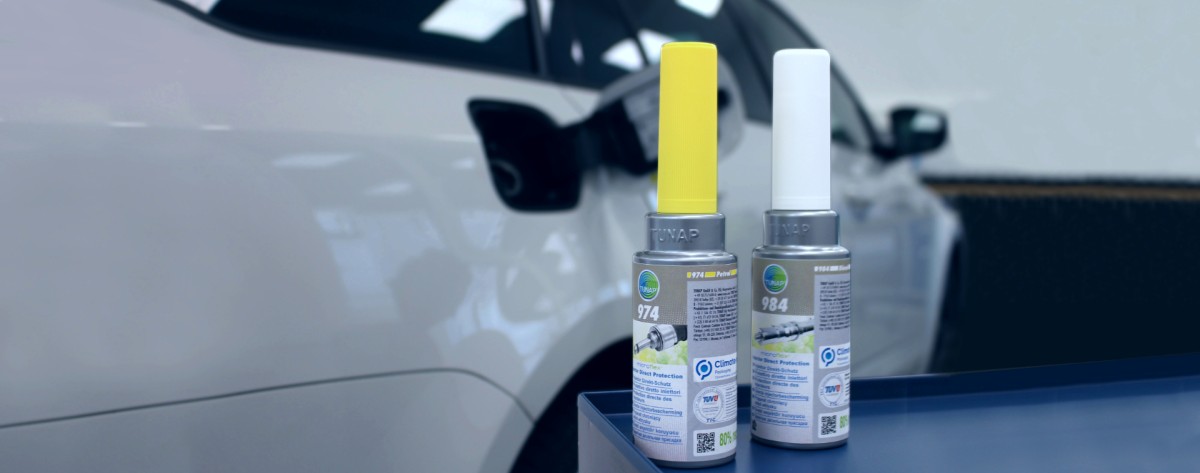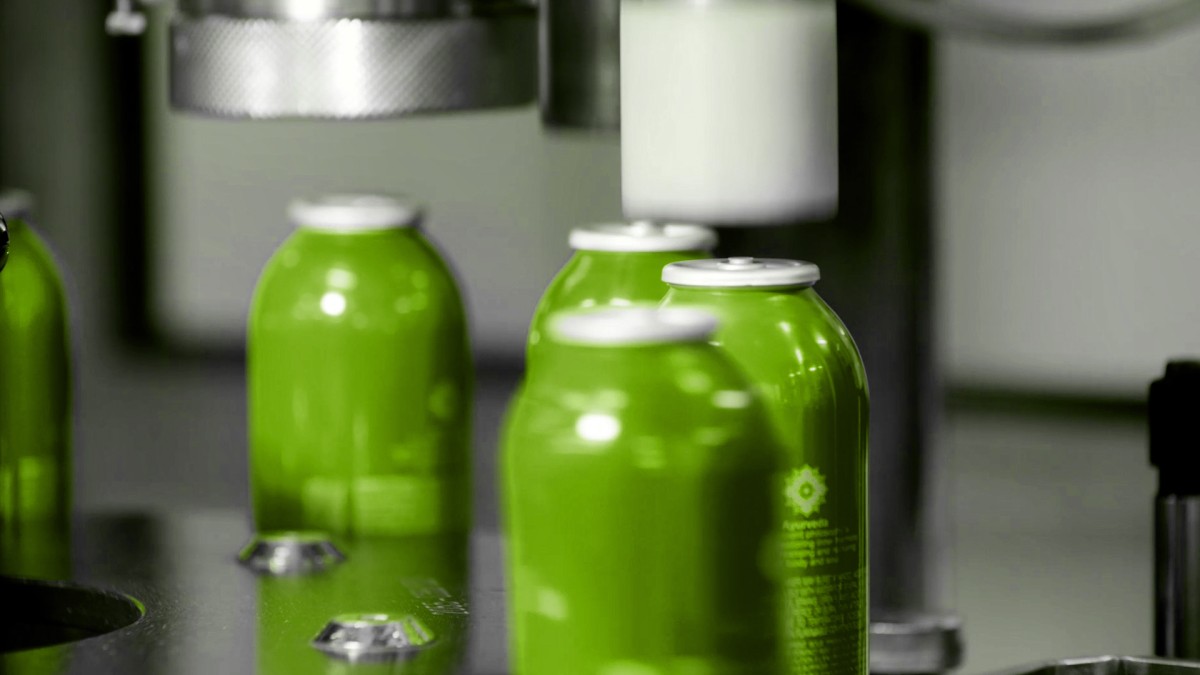Company
TUNAP: Our path to PFAS-free products for a sustainable future
We firmly believe that it is possible to develop PFAS-free products that are both high-performing and environmentally conscious.

Readingtime: aprox. 4 Minutes | An articel from TUNAP | TUNAP Blog
At TUNAP, we are committed to a sustainable future by replacing PFAS in our products and formulations with eco-friendly alternatives. This blog post explains why PFAS pose health and environmental risks and how TUNAP develops innovative, high-performance products and formulations that meet our customers’ needs while protecting the environment. The new PFAS-free TUNAP SPORTS impregnation spray shows that this is possible without compromising top performance.
We at TUNAP are passionate about developing products and formulations that are not only highly effective but also environmentally friendly. That is why, among other initiatives, we have taken a close look at how we can replace PFAS in our products and formulations.
PFAS: Versatile chemistry with a dark side
PFAS are chemical compounds that have historically been used in many products to give them water- and dirt-repellent properties. They are used, among other things, as high-temperature inert oils; one example is PTFE (commonly known as “Teflon”), which is used as a solid lubricant and, together with PFAS, forms a high-temperature inert grease. Fluorinated gases are also classified as PFAS. In general, PTFE is found as a solid lubricant in various lubricants.
In addition, PFAS substances often appear in outdoor clothing, sporting goods, food packaging, cosmetics, cleaning and polishing agents, chemically inert plastics/seals, and even household products such as non-stick cookware. Their unique properties made them popular for a long time in many products that we use every day. However, the advantages of PFAS are increasingly overshadowed by concerns about their impact on human health and the environment.

What are PFAS?
PFAS (often referred to in German as “per- and polyfluorinated alkyl substances”) are synthetic substances in which fluorine atoms replace hydrogen atoms in carbon chains. This bond is exceptionally strong and does not occur naturally - nature cannot build nor break down such molecules (leading to significant environmental problems in the long run). The fluorine atoms give these molecules unique and fascinating properties: due to the strength of the bond, they have very high chemical and oxidation resistance, which also explains their dirt- and water-repellent characteristics.
The problem with PFAS is that they are considered “forever chemicals” because they are extremely stable and degrade only slowly in the environment and in the human body. This leads to their accumulation in water, soil, and living organisms.
Why are PFAS controversial?
Health Risks: Studies such as those by the EFSA show that certain PFAS (e.g., PFOA, PFNA, PFHxS, PFOS) can negatively affect the immune system and cholesterol levels, as well as influence birth weight.
https://doi.org/10.2903/j.efsa.2020.6223
Environmental Risks: PFAS are extremely stable, meaning they can accumulate globally in water, soil, air, and living organisms. As early as 2015, more than 200 scientists from around the world signed a joint statement, the “Madrid Statement on Poly- and Perfluoroalkyl Substances (PFASs),” calling for stricter regulation and increased research into safe alternatives. They emphasized the persistence, bioaccumulation, and toxicity of various PFAS in ecosystems.
The Arnsberg Case: How PFAS entered drinking water via supposed soil improvers
A striking example of the PFAS problem can be found in the region around Arnsberg (Sauerland): in 2006, PFAS-contaminated material—specifically paper or compost sludge—was applied as a supposed “soil improver” on agricultural land. As a result, the substances entered not only the soil but also the local drinking water, and numerous residents in Arnsberg were found to have elevated PFAS levels in their blood. This incident drew widespread public attention to the fact that PFAS can contaminate the environment and cause far-reaching damage, not only through industrial processes but also via seemingly harmless auxiliary materials.
The transition to sustainable slternatives: Why we are replacing PFAS in TUNAP products
Given the risks, it is crucial to develop and promote sustainable alternatives. TUNAP has taken on this challenge and is doing everything possible to replace PFAS with environmentally friendly solutions. We are firmly convinced that it is possible to develop products that are both powerful in performance and conscious of environmental concerns. Our more than 50 years of experience in researching and developing chemical-technical products allows us to pursue innovative approaches that not only meet market needs—from companies and retailers to end users—but also protect the planet.
The ongoing development of PFAS regulations is another motivating factor for actively shaping the transition to PFAS-free products. Feel free to contact us if you, too, need support in revising your chemical products.
The transition to sustainable slternatives: Why we are replacing PFAS in TUNAP products
Given the risks, it is crucial to develop and promote sustainable alternatives. TUNAP has taken on this challenge and is doing everything possible to replace PFAS with environmentally friendly solutions. We are firmly convinced that it is possible to develop products that are both powerful in performance and conscious of environmental concerns. Our more than 50 years of experience in researching and developing chemical-technical products allows us to pursue innovative approaches that not only meet market needs—from companies and retailers to end users—but also protect the planet.
The ongoing development of PFAS regulations is another motivating factor for actively shaping the transition to PFAS-free products. Feel free to contact us if you, too, need support in revising your chemical products.
Current legislation on PFAS
PFAS legislation is constantly evolving and has a significant impact on industry. In recent years, numerous countries and regions have started to introduce stricter regulations on the use of PFAS.
The European Chemicals Agency (ECHA) is considering adding PFAS to the list of substances of very high concern (SVHC). This is due to their potential hazards for human and animal health as well as their negative environmental impact, especially regarding their persistence and bioaccumulation. The restriction proposal currently under discussion provides for an almost total ban on substances containing PFAS. Effective, PFAS-free lubricant alternatives are therefore urgently needed.
2025 – Expected technical assessment and political decision
Afterward, the European Commission and the EU Member States will make a political decision based on these technical assessments. By 2025, there could therefore be an EU-wide, legally binding framework for restricting PFAS. Given the wide range of applications—for example, in semiconductor manufacturing, medical devices, or aerospace—exemptions and staggered transition periods are also under discussion and will be determined and formulated during this process.
The expected changes are likely to be far-reaching for many companies. At the same time, the proposal underscores how seriously policymakers and regulatory authorities are taking the problem of PFAS contamination.
You can find ECHA’s current information on PFAS here.
Impact on Industry
The advancing regulation of PFAS directly affects manufacturers across various sectors. Companies must adapt and find innovative solutions to comply with the new requirements. Switching to PFAS-free products not only meets legal obligations but also resonates with consumers, who are increasingly focused on sustainability.

Sustainability begins with conscious decisions
Avoiding or substituting PFAS in our products and formulations is a step in this direction. At TUNAP, we are committed to developing high-performance products and formulations, making us the right partner at your side.
With over 50 years of experience in developing lubricants, cleaners, and greases, we know how important it is to harmonize quality and sustainability. Our new PFAS-free TUNAP SPORTS impregnation spray is a prime example of how we create innovative solutions that are both effective and eco-friendly.
Together, we will develop customized, PFAS-free product solutions that meet the highest quality standards while protecting the environment.
Contact us now and let’s take the next step toward a more sustainable future together!
Further blog entries
The TUNBottle, an Innovative Packaging Solution
The new **TUNBottle** is made from 100% recyclable PET, with 80% derived from recycled materials. It combines resource-efficient production with lightweight design, reducing energy use and transport emissions. A step towards circular economy and sustainable resource management. more
TUNAP: A Success Story Covering Four Generations
TUNAP's successful company history from its beginnings to the present day. more
Bag-On-Valve (BOV) vs. Classic Spray Technologies
What does TUNAP stand for? Innovative, sustainable solutions with a focus on health, quality, and environmental compatibility. Discover our cutting-edge Bag-on-Valve (BOV) aerosol technology, used in technical products like airco well® 996/997 and cosmetics, reducing our ecological footprint while delivering top performance. more



